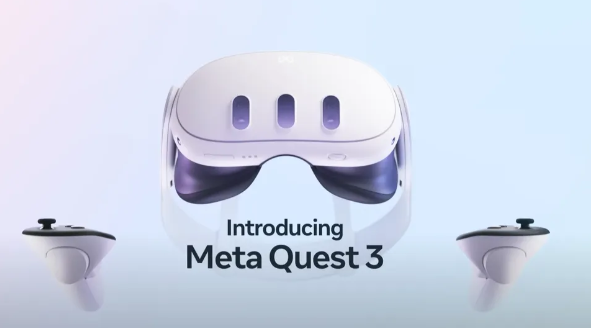Meta Platforms, the parent company of Facebook, is reportedly preparing to integrate display technology into its Ray-Ban smart glasses as it accelerates efforts to develop "AI-native" devices. According to a report by The Financial Times, the updated glasses, featuring a small display for notifications and AI interactions, could be released as early as the second half of 2025.
The move represents a significant step in Meta's broader vision of transforming smart glasses into the next major computing platform, a goal championed by CEO Mark Zuckerberg. The company's renewed focus on augmented reality (AR) and artificial intelligence (AI) integration positions Meta to compete in the evolving wearable technology market, which includes Apple's Vision Pro and other AR innovations.
Since launching in 2021, Meta's Ray-Ban glasses have gained traction among consumers for their sleek design and functional features, such as photo and video capture, music playback, and AI assistant integration. The addition of a built-in display marks an evolution that could enhance user interaction by presenting notifications and information visually, rather than solely through audio.
Meta's Chief Technology Officer Andrew Bosworth emphasized the potential of glasses as an AI platform in a recent blog post. The "next big step" toward the metaverse envisioned by our Reality Labs division is combining AI glasses with augmented-reality experiences, Bosworth wrote. He added that while phone and PC makers are racing to integrate AI, glasses offer a unique opportunity to design AI-first devices from the ground up.
The report also highlights Meta's accelerated efforts to develop its Orion AR glasses, which Zuckerberg showcased as a prototype earlier this year. These glasses aim to project virtual objects into the user's field of vision, enabling activities like video calls and notifications. However, they remain in the prototype stage, with consumer availability still "years away," according to sources familiar with the project.
Meta's partnership with EssilorLuxottica, the maker of Ray-Ban, has been a cornerstone of its smart glasses development. The glasses have been praised for their ability to blend advanced technology with a familiar, stylish design. The potential addition of display technology would further solidify their position in the market, particularly as Meta aims to pivot users away from smartphones and toward wearable computing.
Meta's efforts to integrate AI and AR technology into wearable devices align with the company's broader ambitions for the metaverse. Zuckerberg has previously described smart glasses as a foundational element of the company's long-term vision for augmented reality.
The announcement of new features comes as Meta's stock shows resilience in the face of market fluctuations. On Monday, Meta's shares rose 2.5% to close at $599.85, recovering from a dip below its 50-day moving average last week. The company's stock has surged 69% year-to-date, reflecting investor optimism about its AI and AR initiatives.
Critics, however, remain cautious about the high costs and technological challenges of AR glasses. Meta's Orion prototype, for example, reportedly costs $10,000 to manufacture, underscoring the hurdles in bringing advanced AR devices to market at a consumer-friendly price point.
Still, the integration of display technology in Ray-Ban glasses could serve as a transitional step toward more sophisticated AR devices. By building on the success of its existing product line, Meta positions itself to capture a larger share of the wearable tech market while advancing its AI ambitions.





